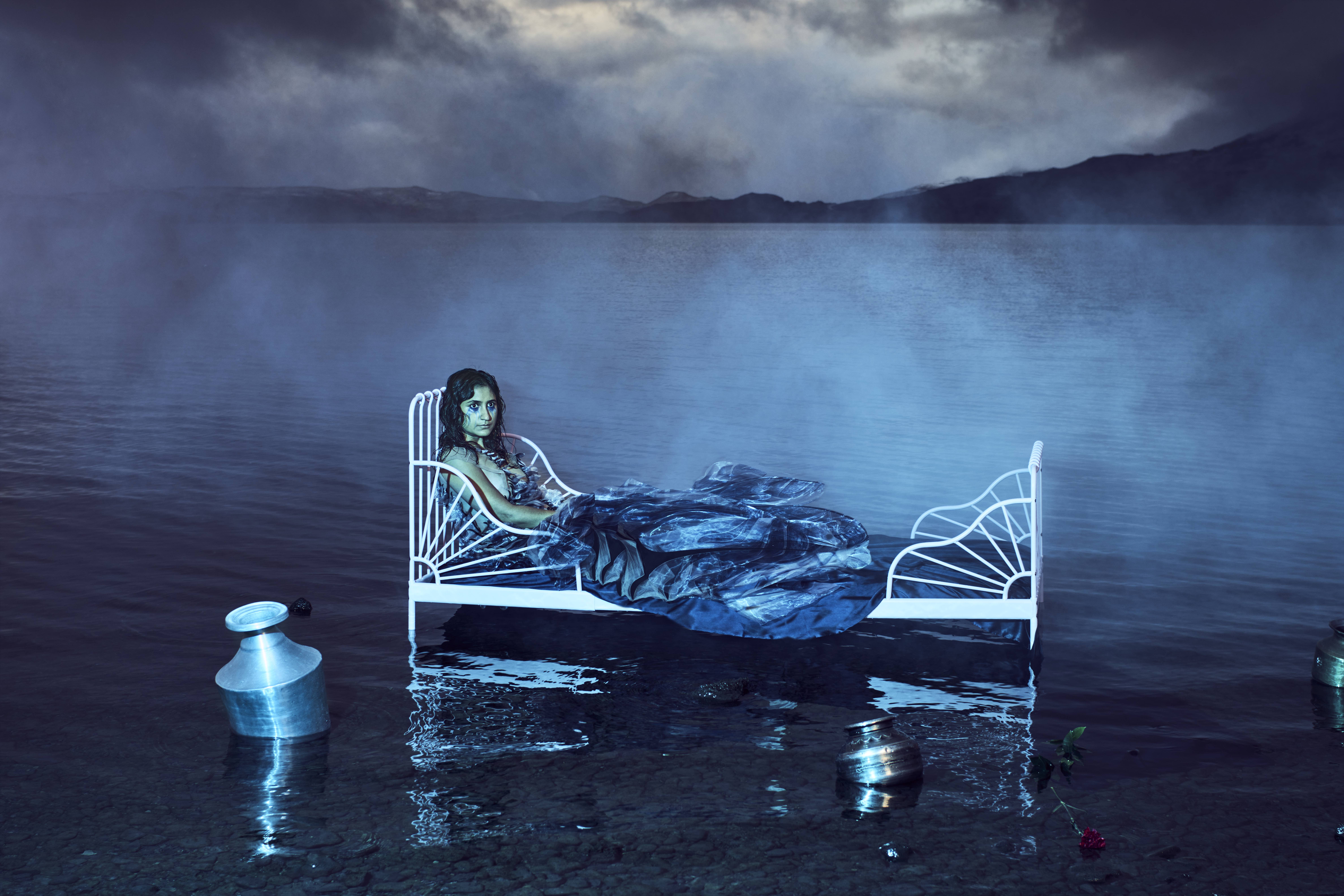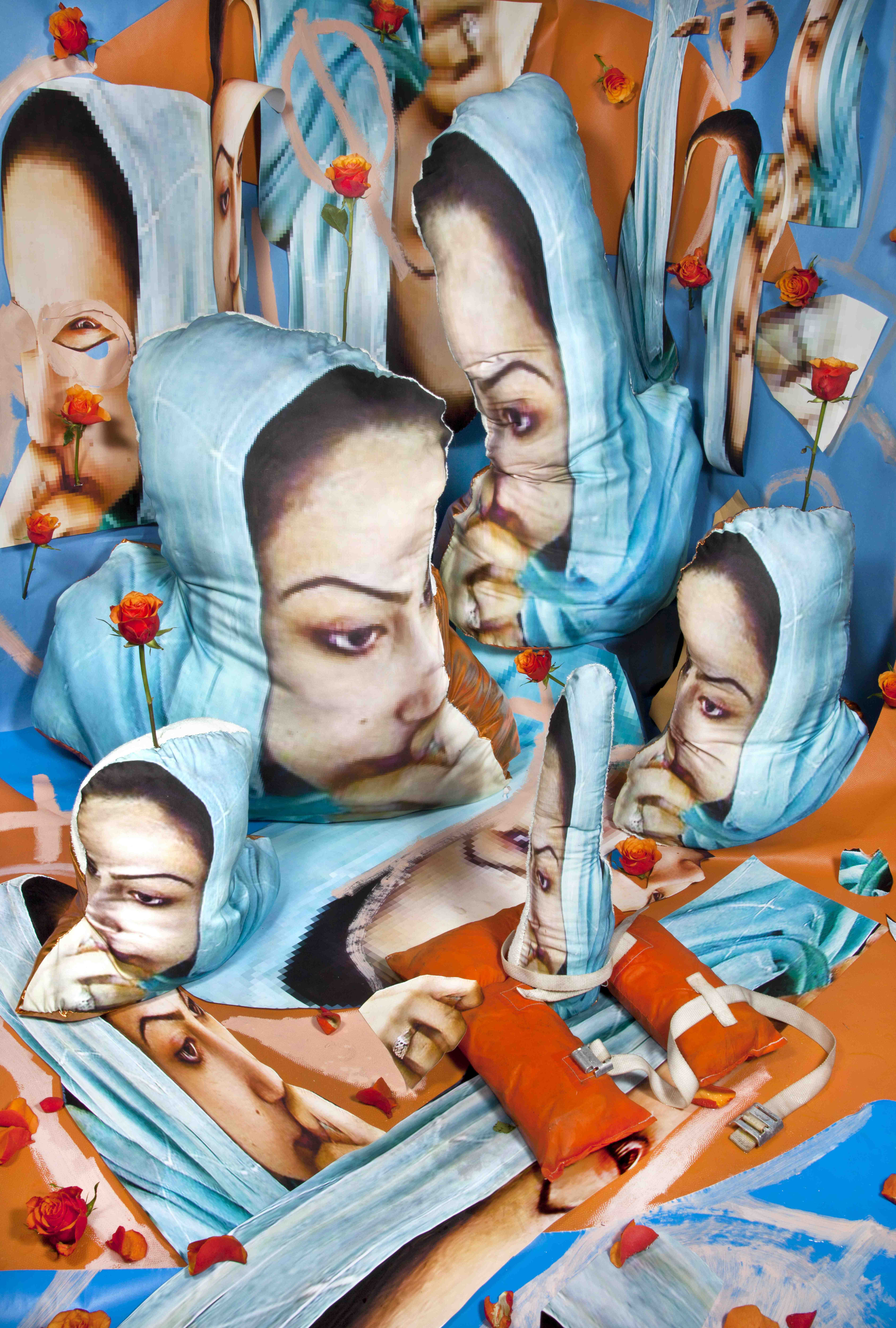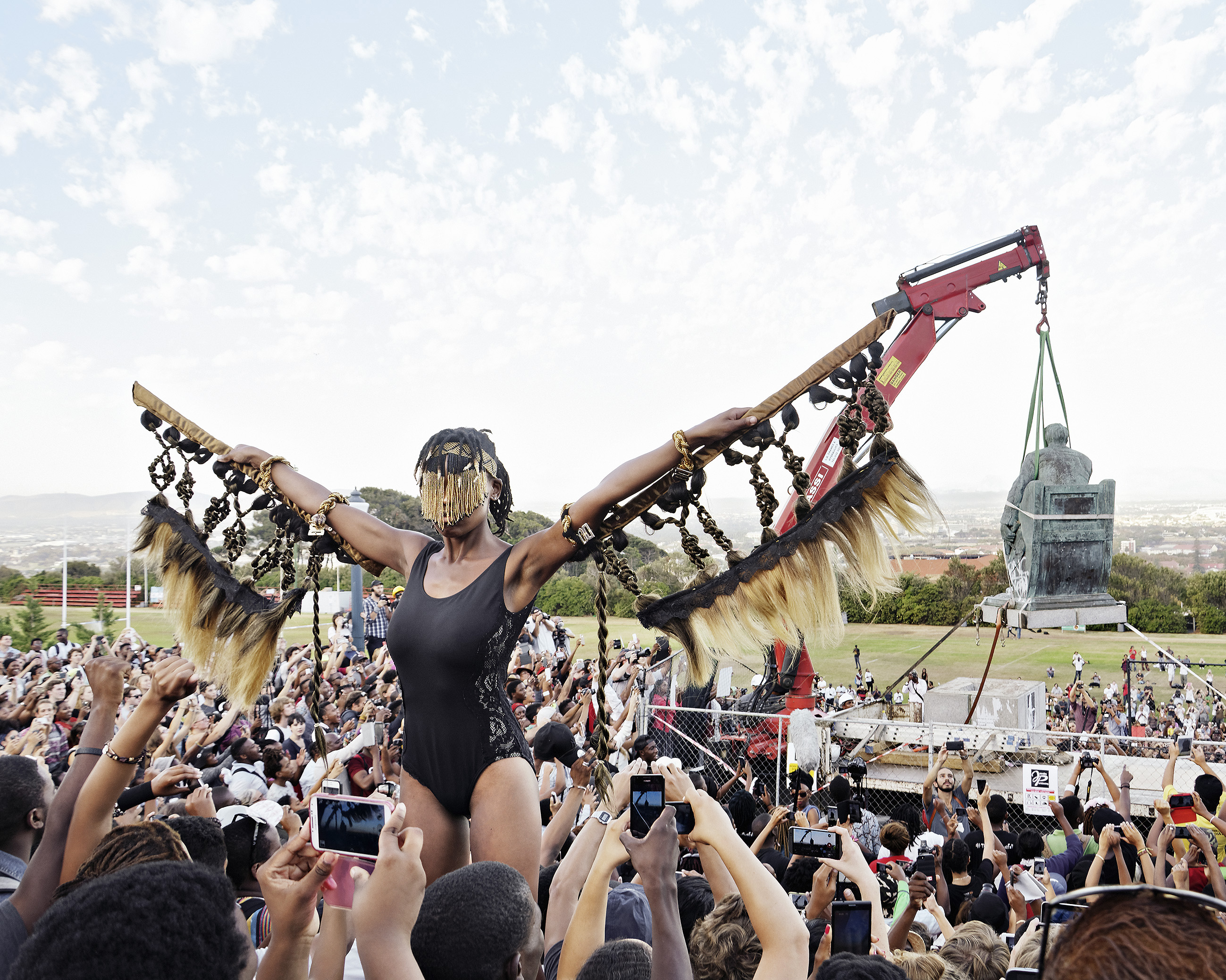Chapungu – The Day Rhodes Fell, 2015 © Sethembile Msezane
Featuring artists from across the world, this south London show surveys lens-based activism beyond straight documentary
The last decade has seen key changes for women and women’s rights, particularly around bodily autonomy. In 2020 the Polish Constitutional Tribunal brought in new laws preventing abortion in the case of foetal abnormalities, effectively banning terminations in all cases except incest, rape and danger to the mother’s health. Turkey withdrew from the Istanbul Convention, a landmark framework for combating gender-based violence, in 2021, the same year the Taliban retook power in Afghanistan and swiftly banned women from secondary schools, work, TV, parks, fun fairs and gyms.
In 2022, the US Supreme Court overturned Roe v Wade, a landmark 1973 case which had generally protected the right to have an abortion. And in 2022, 22-year-old Mahsa Amini died in Tehran after being arrested by the Guidance Patrol (Iran’s ‘morality police’) for allegedly improperly wearing her hijab. The authorities claimed that Amini had a heart attack at the police station and fell into a coma before being transferred to hospital; eyewitnesses said she was severely beaten and died from police brutality.
These events represent the erosion of women’s right to self-determination, rolling back laws won just a generation – or less – before. Women have rallied in response, organising marches and protests which have spawned larger-scale movements, such as Women, Life, Freedom in Iran.

“The show is about the visibility around stories that I find we have a responsibility to address” – Fiona Rogers
Women artists have also made work to defy this contemporary condition, and it is this that is highlighted in South London Gallery’s Acts of Resistance: Photography, Feminisms and the Art of Protest. Focusing on the last decade or so, the show features 16 artists from around the world, including Sethembile Msezane, Hoda Afshar, Poulomi Basu, Sheida Soleimani and Carmen Winant. It is jointly curated by Sarah Allen, SLG head of programme, and Fiona Rogers, the V&A’s Parasol Foundation Curator of Women in Photography.
“These artists are working at the intersection of activist and feminist practice, specifically thinking of the period of 2010 to the present day,” Allen says. “The reason for that is what has unfolded: so much has happened in the last 10 years, we wanted to do something responsive and platform artists who are making work now.”
“The show is about the visibility around stories that I find we have a responsibility to address,” agrees Rogers. “It’s about ensuring that museums are giving space to these stories, normalising them and also making sure they don’t fall away from public knowledge. I’ve always felt with the Parasol Women in Photography Project, you can’t really have a curatorial programme that’s gender specific unless it’s also political. It needs to try to balance the needle.”

The pair point to the emergence of social media in this period, arguing it has helped build and realise expansive notions of solidarity between women globally. Photography has played a key role in this phenomenon, with images of protests travelling widely and helping forge alliances. Social media is an important strand in the show, but Acts of Resistance focuses on artworks rather than photography’s well-established documentary role. “Activism and photography go hand-in-hand, the camera has been used to show protests and provide evidence,” Allen says. “But we’re bringing together artists who are not working in that vein, who have a more expanded, experimental practice.”
Acts of Resistance includes works rooted in women’s experiences but depicting potential or imagined futures, such as Basu’s Sisters of the Moon, which presents a dystopian vision of a world in which women are denied access to sanitation and healthcare. Soleimani’s Delara, meanwhile, uses ‘poor images’ to recreate photographic traces of women unlawfully imprisoned and executed in Iran. Soleimani, who was born in the US to Iranian political refugees, works with journalists and trawls the dark web to find photographs of these women, hoping to reinstate those whom the Iranian authorities would have disappear.
Soleimani’s Ghostwriter series was recently acquired by the V&A but, Rogers says, putting together Acts of Resistance was a chance to work more deeply with this artist and others. “We don’t just want to acquire something and move on, we want to build relationships with these women,” she explains. “It’s about visibility for these stories, these issues, these people.”
Acts of Resistance: Photography, Feminisms and the Art of Protest is at South London Gallery until 02 June as part of the V&A Parasol Foundation Women in Photography Project

